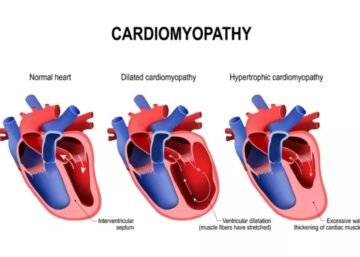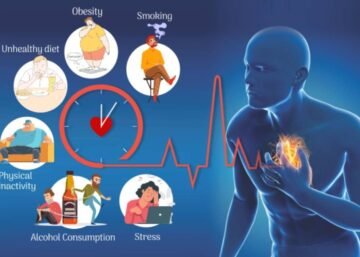
A heart-healthy diet, also known as a cardiac diet, is a way of eating that promotes good heart health and reduces the risk of cardiovascular diseases, such as heart disease and stroke. Such a diet typically focuses on consuming foods that are low in saturated and trans fats, cholesterol, sodium (salt), and added sugars while being rich in nutrients that support heart health. Here are some key components of a heart-healthy diet:
Fruits and Vegetables: Aim to fill half your plate with colorful fruits and vegetables. They are high in vitamins, minerals, antioxidants, and fiber, which can help lower blood pressure and reduce the risk of heart disease.
Whole Grains: Choose whole grains like whole wheat, brown rice, oats, and quinoa over refined grains. They provide more fiber, which can help lower cholesterol and regulate blood sugar.
Lean Proteins: Opt for lean sources of protein, such as poultry, fish, legumes (beans and lentils), and tofu. Limit red meat and processed meats, as they are often high in saturated fats.
Fatty Fish: Fatty fish like salmon, mackerel, and trout are rich in omega-3 fatty acids, which are beneficial for heart health. Aim to eat fish at least twice a week.
Healthy Fats: Use healthy fats like olive oil, avocado, and nuts in moderation. These fats are unsaturated and can help lower bad cholesterol levels.
Limit Saturated and Trans Fats: Reduce the consumption of foods high in saturated and trans fats, such as fried foods, baked goods, and fatty cuts of meat. These fats can raise bad cholesterol levels.
Reduce Sodium: Excess salt (sodium) can raise blood pressure, increasing the risk of heart disease. Limit your salt intake and avoid processed and high-sodium foods.
Portion Control: Be mindful of portion sizes to avoid overeating. This can help maintain a healthy weight and prevent obesity, a major risk factor for heart disease.
Limit Added Sugars: High sugar intake can contribute to weight gain and metabolic problems. Cut down on sugary beverages, sweets, and processed foods with added sugars.
Alcohol in Moderation: If you consume alcohol, do so in moderation. This typically means up to one drink per day for women and up to two drinks per day for men.
Stay Hydrated: Drink plenty of water throughout the day. Dehydration can put stress on the heart.
Manage Portion Sizes: Be mindful of portion sizes to avoid overeating and maintain a healthy weight.
Limit Processed Foods: Processed foods often contain unhealthy fats, excess sodium, and added sugars. Try to cook fresh, whole foods at home whenever possible.
Regular Physical Activity: In addition to diet, regular physical activity is crucial for heart health. Aim for at least 150 minutes of moderate-intensity exercise per week.
Remember that individual dietary needs may vary based on factors like age, gender, activity level, and existing health conditions. It’s a good idea to consult with a healthcare professional or a registered dietitian for personalized guidance on creating a heart-healthy diet plan that suits your specific needs and goals
Stress Management: Chronic stress can be harmful to the heart. Practice stress-reduction techniques like meditation, yoga, or deep breathing exercises.






